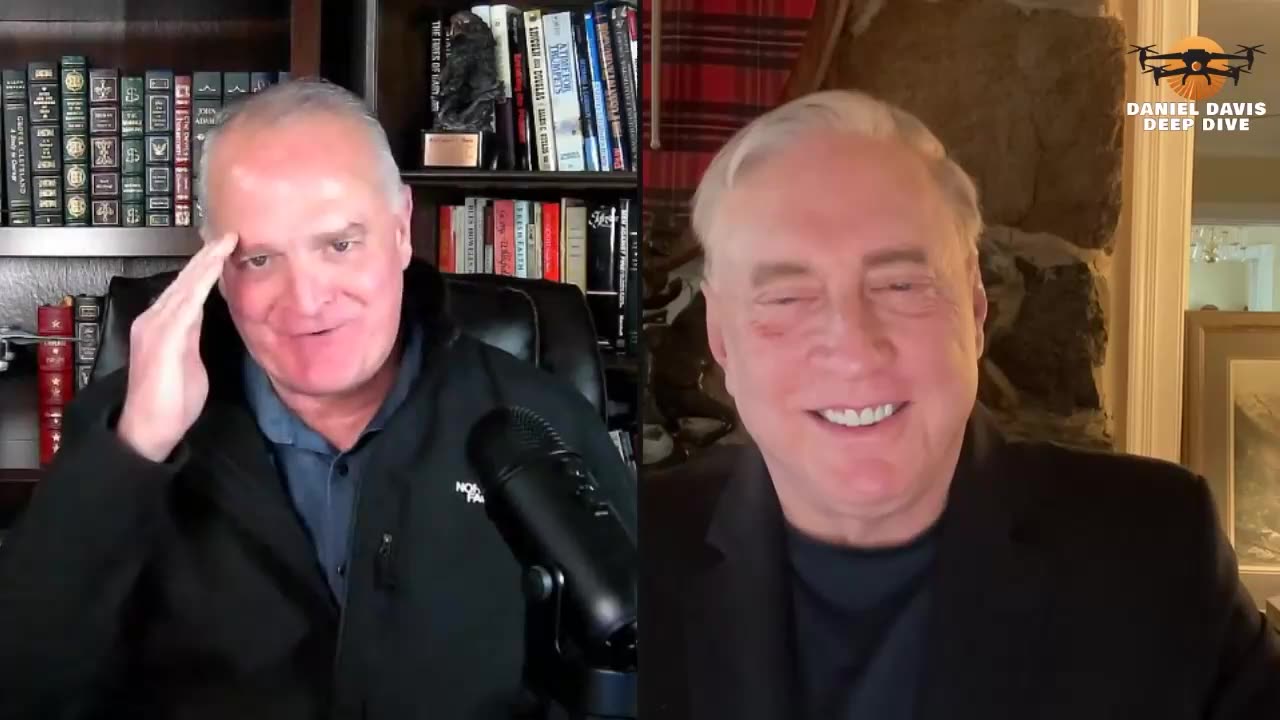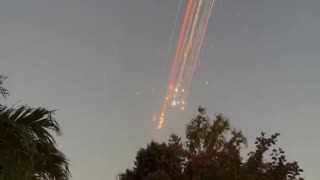Premium Only Content

Daniel Davis & Douglas MacGregor: Ground operation in Gaza
Daniel Davis & Douglas MacGregor: Ground operation in Gaza about to begin. Possible consequences.
What is the initial objective of Israel in Gaza land operation?
Will Israelis do better than Russians in Chechnya?
What will Hamas do?
How long will this operation last?
What does experience of the 1973 “Yom Kippur War” tells us?
Will there be more than one front?
Will Iran take part in the war?
Reaction to Biden’s speech.
What is the role of NATO?
Does America need permanent alliances?
Hamas is a designated terrorist group backed by Iran and that has governed the Gaza Strip since 2007.
Hamas began firing thousands of rockets on Saturday morning, striking targets as far away as Tel Aviv and the outskirts of Jerusalem, which rarely see any direct hits because of Israel's sophisticated Iron Dome missile defense system.
Backed by a barrage of rockets, Hamas militants stormed from the blockaded Gaza Strip into nearby Israeli towns
The unprecedented attack, which has killed at least 1300 people in Israel, Israel's Army Radio reported Monday. At least 3000 people have been injured, the Israeli Health Ministry said earlier.
More than 100 Israeli civilians, soldiers, and foreign nationals have also been taken hostage by Hamas, prompting Israeli Prime Minister Benjamin Netanyahu.
Israel on Sunday formally declared war on Hamas.
Douglas Abbott Macgregor (born January 4, 1947) is a retired U.S. Army colonel and government official, and an author, consultant, and television commentator. He played a significant role on the battlefield in the Gulf War and the 1999 NATO bombing of Yugoslavia. His 1997 book Breaking the Phalanx established him as an influential if unconventional theorist of military strategy. His thinking contributed to the US strategy in its 2003 invasion of Iraq. On November 11, 2020, a Pentagon spokesperson announced that Macgregor had been hired to serve as Senior Advisor to the Acting Secretary of Defense, a post he held for less than three months. Macgregor was the "squadron operations officer who essentially directed the Battle of 73 Easting" during the Gulf War. Facing an Iraqi Republican Guard opponent, he led a contingent consisting of 19 tanks, 26 Bradley Fighting Vehicles and 4 M1064 mortar carriers through the sandstorm to the 73 Easting at roughly 16:18 hours on 26 February 1991 destroyed almost 70 Iraqi armored vehicles with no U.S. casualties in a 23-minute span of the battle. He was at the front of the formation in the center with Eagle Troop on the right and Ghost Troop on the left. Macgregor designated Eagle Troop the main attack and positioned himself to the left of Eagle Troop. Eagle Troop Scouts subsequently followed Macgregor's tank through a minefield during which his crew destroyed two enemy tanks. As Macgregor was towards the front of the battle involved in shooting, he didn't "request artillery support or report events to superiors until the battle was virtually over, according to one of his superior officers". The risks he undertook "could have been criticized had the fight turned ugly". At a November 1993 exercise at the Army's National Training Center (NTC) at Fort Irwin, Lt. Col. Macgregor's unit vastly outperformed its peers against the "Opposition Force (OPFOR)". The series of five battles usually end in four losses and a draw for the visiting units; his unit won three, lost one, and drew one. Macgregor's unit dispersed widely, took unconventional risks, and anticipated enemy movements. Macgregor was "one of the Army's leading thinkers on innovation", according to journalist Thomas E. Ricks. He "became prominent inside the Army" when his book Breaking the Phalanx was published in 1997, arguing for radical reforms. Breaking the Phalanx was rare in that an active duty military author was challenging the status quo with detailed reform proposals for the reorganization of U.S. Army ground forces. The head of the Army, United States General Dennis Reimer, wanted to reform the Army and effectively endorsed Breaking the Phalanx and passed copies out to generals; however, reforming the U.S. Army according to the book met resistance from the Army's de facto "board of directors" — the other four-star Army generals — and Reimer did not press the issue. Breaking the Phalanx advocated that "the Army restructure itself into modularly organized, highly mobile, self-contained, combined arms teams that look extraordinarily like the Marine Corps' Air Ground Task Forces". Many of Macgregor's colleagues thought his unconventional thinking may have harmed his chances for promotion. While an Army NTC official called him "the best war fighter the Army has got," colleagues of Macgregor were concerned that "the Army is showing it prefers generals who are good at bureaucratic gamesmanship to ones who can think innovatively on the battlefield."
#israel #douglasmacgregor #gaza
-
 0:29
0:29
World News and Events
10 days agoSpaceX Starship rocket fell apart during test flight
942 -
 LIVE
LIVE
In The Litter Box w/ Jewels & Catturd
21 hours agoGreen New Scam | In the Litter Box w/ Jewels & Catturd – Ep. 729 – 1/28/2025
5,857 watching -
 2:03:41
2:03:41
The Quartering
3 hours agoTrump To END Income Tax, Captain America Backlash, Obese Rapper Sues Lyft & Surge Pricing In Walmart
27.2K10 -
 LIVE
LIVE
Dr Disrespect
3 hours ago🔴LIVE - DR DISRESPECT - WARZONE - NEW SEASON 2 UPDATE
4,430 watching -
 1:05
1:05
tether
9 hours agoHadron by Tether - tokenize anything, anywhere
562 -
 34:32
34:32
Standpoint with Gabe Groisman
18 hours agoGovt. Workers AREN’T Working Says DOGE Chair Sen. Joni Ernst
313 -
 LIVE
LIVE
Savanah Hernandez
2 hours agoMASS DEPORTATIONS ARE HERE AND THEY ARE GLORIOUS
1,254 watching -
 21:12
21:12
Clownfish TV
15 hours agoThe Video Game Industry LITERALLY Wants You Dead?!
7144 -
 1:35:44
1:35:44
Right Side Broadcasting Network
5 hours agoLIVE REPLAY: First Press Briefing by White House Press Secretary Karoline Leavitt - 1/28/25
79.9K79 -
 DVR
DVR
vivafrei
6 hours agoJan. 6 Injustices! Jeremy Brown STILL IN JAIL! Untold Story of Ashli Babbitt Killer Michael Byrd!
43K12